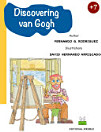From the Forbidden Garden: Letters from Alejandra Pizarnik to Antonio Beneyto
Dec 2003 · Bucknell University Press
5.0star
1 reviewreport
Ebook
112
Pages
reportRatings and reviews aren’t verified Learn More
About this ebook
"This selection of thirty letters and two postcards, written between September 2, 1969, and September 12, 1972, includes most of Pizarnik's correspondence with Spanish writer-editor-artist Antonio Beneyto. From these informative letters we learn about her influences, the artists, poets, and writers she preferred, and her reactions to them. She collaborated on various projects and cultivated many literary and personal ties with writers of the stature of Julio Cortazar, Olga Orozco, Octavio Paz, Pieyre de Mandiargues, Silvina Ocampo, and Luisa Sofovich, among others." "Although the corpus of Pizarnik's writing available in English has expanded in the last twelve years, it is still far from adequate. This is the first time that a selection of letters from Alejandra Pizarnik to Antonio Beneyto has been published in English. The translators hope that this volume will serve English-speaking audiences as a new bridge to her work."--BOOK JACKET.
Ratings and reviews
5.0
1 review
About the author
The daughter of Polish-Jewish immigrants, Pizarnik suffered throughout her life from severe depression and committed suicide one weekend on leave from the psychiatric hospital where she was institutionalized. Pizarnik spent several years in Paris in contact with the European poetic vanguard and toward the end of her life held a Guggenheim Foundation award. Her poetry portrays the life of Latin American women as a bodily dismemberment by a multiply oppressive and repressive patriarchy. It sparked interest alone for the intensity with which it chronicles the obsessions of a feminine poete maudit. Concomitantly, Pizarnik's poetry assumed a clandestine and iconic dimension because the bulk of her mature output coincided with the military regimes in Argentine. For some, her work is a symbol of the destruction of the individual by neo-Fascist tyranny. Although Pizarnik mostly wrote highly charged poetic vignettes, leading her to be compared with Sylvia Plath, she also wrote outstanding prose poems, culminating in The Bloody Countess (1971). This is a chilly recreation of the nefarious Hungarian noblewoman, Erzbet Bathory, who was accused in the seventeenth century of torturing to death 600 maidens; and it is a work whose interest overlaps, if only obliquely, with the significant lesbian dimension of Pizarnik's writing.
Rate this ebook
Tell us what you think.
Reading information
Smartphones and tablets
Install the Google Play Books app for Android and iPad/iPhone. It syncs automatically with your account and allows you to read online or offline wherever you are.
Laptops and computers
You can listen to audiobooks purchased on Google Play using your computer's web browser.
eReaders and other devices
To read on e-ink devices like Kobo eReaders, you'll need to download a file and transfer it to your device. Follow the detailed Help Center instructions to transfer the files to supported eReaders.




